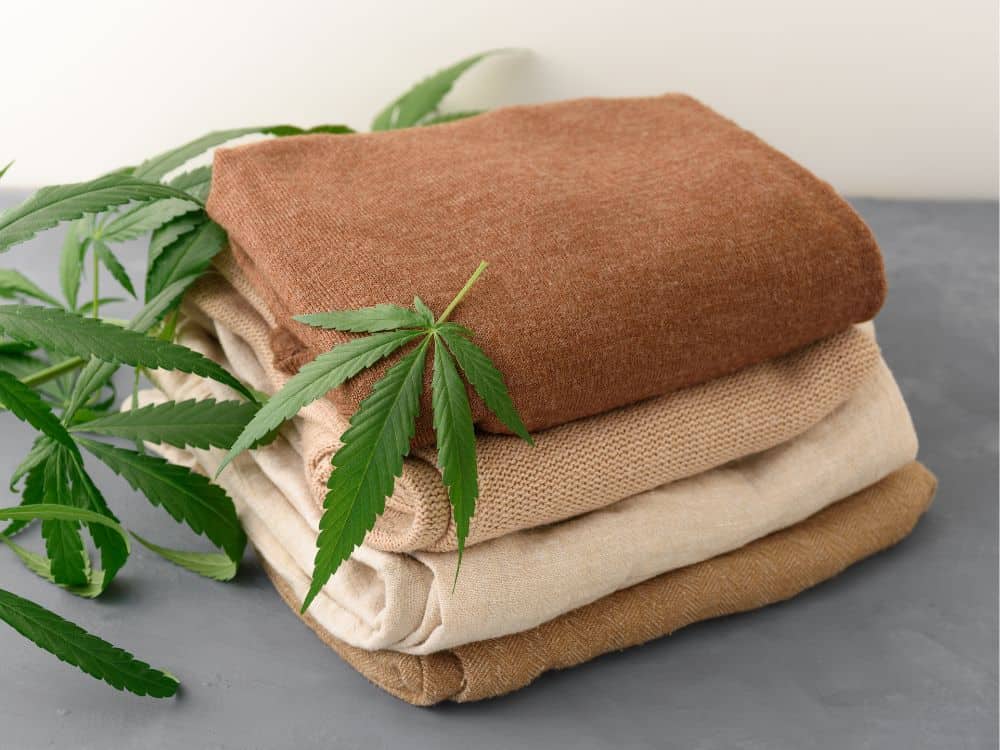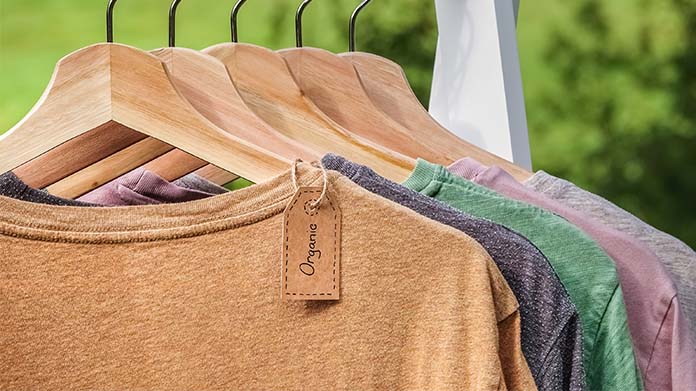Excellent News For Choosing Bamboo Clothes
Wiki Article
What Makes Hemp Strong And Durable? Is It Also More Regenerative?
Hemp due to its natural properties as well as the way that it is grown is believed to be more durable and renewable than cotton. Here's why- Biodegradability-
Natural Fibers- Hemp, a natural fiber from plants is biodegradable. Fabrics and clothes made of hemp break down over time. This means they return to nature without leaving behind any waste. This is different from synthetic fibres such as polyamide that can break down over hundreds of decades.
Hemp Textiles do not contain synthetic additives They do not contain synthetic additives. Hemp fibers typically don't contain synthetic additives. However, some cotton textiles are treated with synthetic chemicals such as dyes and finishes, which could hinder the biodegradation process.
Durability-
Hemp is known for its strength and durability. Hemp clothing is less prone than cotton clothing to wear out, so it lasts longer. This durability means that hemp garments can withstand many washes and wear cycles prior to showing signs of deterioration.
Hemp fabrics tend to be less prone to pill (the formation small fuzzy ball that forms on the surface of the fabric) than cotton. This characteristic is a major factor in their longevity and overall quality.
Regenerative Agriculture-
Soil Health- Hemp cultivation can be regenerative when practiced responsibly. Hemp cultivation that is sustainable has a deep-rooted system that can help prevent soil compaction. This system of roots also helps to prevent erosion. This process of regeneration could improve the soil for the future growth of crop.
Low environmental impact Sustainable hemp cultivation techniques require the use of a minimal amount of pesticides. A cotton farming practice that uses synthetic chemicals is more likely to cause erosion of soils and degrade the quality of water.
Water Efficiency-
Hemp usually requires less than cotton to grow. Due to its drought-resistant properties, it can be grown with minimal or no irrigation. This makes it a more efficient use of water, particularly in areas that have limited water resources.
Hemp is a simple crop to incorporate in crop rotations that improve the health of soil. It may also lower the chance of disease accumulation and soil depletion. Crop rotation isn't as prevalent in traditional cotton farming.
Hemp is a versatile substance which can be utilized to a variety of items, including building materials, textiles, clothing and even paper. The versatility of hemp implies that it can be used to help support many industries with sustainable, regenerative practices.
While hemp is a great product with many benefits but it is essential to keep in mind that cotton and hemp can both be made in a sustainable or unsustainable way, depending on processes and methods used to grow them. Selecting hemp products made with ethical and eco-friendly practices can maximize its environmental advantages. Selecting organic cotton products can help reduce environmental impacts of traditional cotton production. View the top more hints on hemp clothing for blog tips including hemp long sleeve shirt, hemp dress, hemp sweatshirt, nomad hemp wear, mens hemp trousers, jungmaven t shirt, womens hemp clothing, hemp boxer shorts, hoodlamb jacket, jungmaven sweatshirt and more.

How Can Hemp Fibers Benefit Carbon Sequestration (Carbon Sequestration), Sustainability, And Crop Rotation (Crop Rotation)?
Hemp fibers aid in carbon storage, sustainability and crop rotation in many ways. They are a good choice for textile and agricultural production.
Hemp grows quickly and matures in 70-120 days dependent on the variations and the conditions under which it grows. Hemp plants absorb carbon dioxide (CO2) in their rapid growth phase as part of their photosynthesis process. The carbon absorption process can contribute to carbon sequestration decreasing CO2 levels in the atmosphere.
Hemp produces lots of biomass. The tall stalks and the dense leaves of the plant yield an abundance of organic material. The biomass, when integrated in soil, or used to make various products, can help to build up of carbon.
Sustainability:
Hemp is grown using less chemicals than cotton or other crops. Hemp's natural resistance against many insects and diseases is reduced by chemical treatments. Organic hemp farming is a sustainable way for hemp cultivation because it does not use synthetic chemicals.
Hemp can be irrigated using minimal water, unlike other plants that require a lot of water, like cotton. This makes it more sustainable for regions with limited resources of water.
The deep-rooted system of hemp can enhance the soil's health. The roots of the plant help to prevent erosion of soil by stabilizing the soil structure and reducing runoff. Hemp cultivation also promotes soil fertility by encouraging microbial soil activity.
Hemp could be a part of the rotation of crops. Crop rotation is a technique that involves rotating several crops at different times within the same space. This method helps break the cycle of disease and pests, reduce soil erosion, and improve soil structure. Hemp's role in rotation of crops helps sustain farming practices.
The rotation of the crop-
Hemp can also be added to rotations of crops alongside other crops, such as grains, legumes, or vegetables. This will help farmers maintain their soil health, lower the risk of crop-specific pests and diseases, and also promote healthy nutrient cycling.
Hemp roots penetrate the soil and aerate it, which helps reduce compaction and enhances the infiltration of water. After hemp, better soil structure will can benefit the next crop.
In the end, hemp fibers enhance the storage of carbon, sustainability and practices for crop rotation due to their rapid expansion and production of biomass. Additionally, they require minimal chemicals, make efficient use of water, and are compatible with crop rotating systems. Hemp farming is an environmentally sustainable farming practice. The fibers that result are environmentally friendly and ideal for use in textiles, as well as other applications. Check out the most popular hemp clothing for blog info including hemp cotton fabric, patagonia iron forge jacket, patagonia hemp pants, hemp button shirt, hemp jacket, hemp denim, hemp shirts mens, hemp pants, afends jesse dress, hemp jeans and more.

What outdoor activities does bamboo attire not fit for and the reason?
Bamboo-based clothing is changing the way we do outdoor activities due to its unique combination of comfort, performance, and sustainability. Bamboo-based clothing makes a difference in outdoor activities, such as hiking.
WhyBamboo-based clothes possess outstanding moisture wicking properties that keep hikers dry, comfortable and warm while on the trails. The fabric's breathability assists in regulating the body temperature when hiking even in the hottest of weather. Bamboo fabric is soft and minimizes irritation.
Trail Running
Why- The moisture-wicking properties of bamboo clothing are crucial for trail runners, who work hard in difficult conditions. Bamboo clothing keeps runners cool and dry to avoid discomfort during strenuous exercise.
Camping-
Why- Bamboo clothing is suitable for wear all day long and is suitable for camping trips. Its softness, and water-wicking capabilities, help campers stay warm and dry around the campground, whether they're building tents, cooking, or just lounging in front of the flame.
Backpacking-
Why backpackers should benefit from lightweight, moisture-wicking clothing that can handle various climate conditions. Bamboo-based clothing's versatility, comfort and capacity to regulate body temperature makes it the ideal option for backpacking trips that last a long time.
Climbing-
Bamboo clothing is a great choice for providing the flexibility and freedom of movement to climbers. Its moisture-wicking properties keep climbers dry and comfortable during difficult ascents. Moreover, its softness minimizes the risk of skin irritation from gear and harnesses.
Mountain Biking-
Mountain bikers must wear breathable clothing with moisture-wicking characteristics to ensure they are comfortable while riding at high speed. Bamboo-based clothing's ability to regulate temperature and manage humidity is an advantage for mountain bikers who tackle challenging trails.
Yoga and Outdoor Fitness
The flexible, softness and moisture wicking capabilities make it an ideal choice for outdoor and yoga. It is flexible and comfortable that allows for a full flexibility of movement.
Fishing-
Whyare fishermen enthralled by the comfort and moisture-wicking capabilities of bamboo clothing, particularly when they spend a long time on the water. Bamboo regulates body temperature and keeps them dry.
Travel and Adventure Travel
WhyBamboo-based clothing is suitable for travelers who explore different climates. Its versatility and comfort makes it a great choice for trips where space for luggage is limited.
Sustainability-Focused Activities-
Due to its low environmental impact, bamboo-based clothing is preferred by those who enjoy outdoor activities and place an emphasis on sustainability and eco-consciousness. The clothing is compatible with those who seek to lessen the environmental impact of outdoor activities.
The summary: Bamboo clothing provides the comfort of moisture management, as well as temperature control. Its versatility makes bamboo-based clothing appropriate for all outdoor activities. Take a look at the recommended use this link on bamboo clothing for blog tips including bamboo leggings, childrens bamboo socks, bamboo yoga wear, bamboo baby clothes, bamboo tee shirts wholesale, boody ecowear, bamboo maternity wear, long sleeve bamboo t shirt, bamboo clothing sustainable, t shirts bamboo and more.
